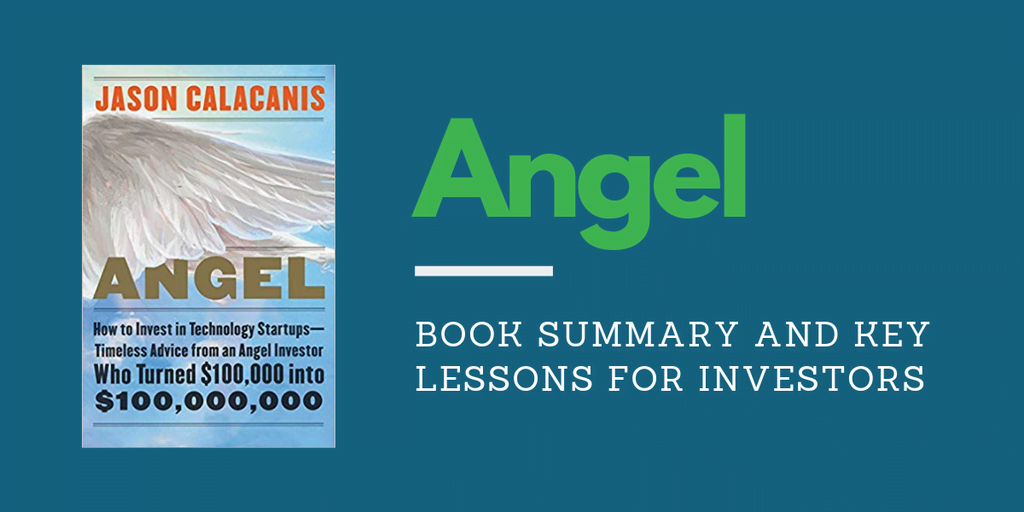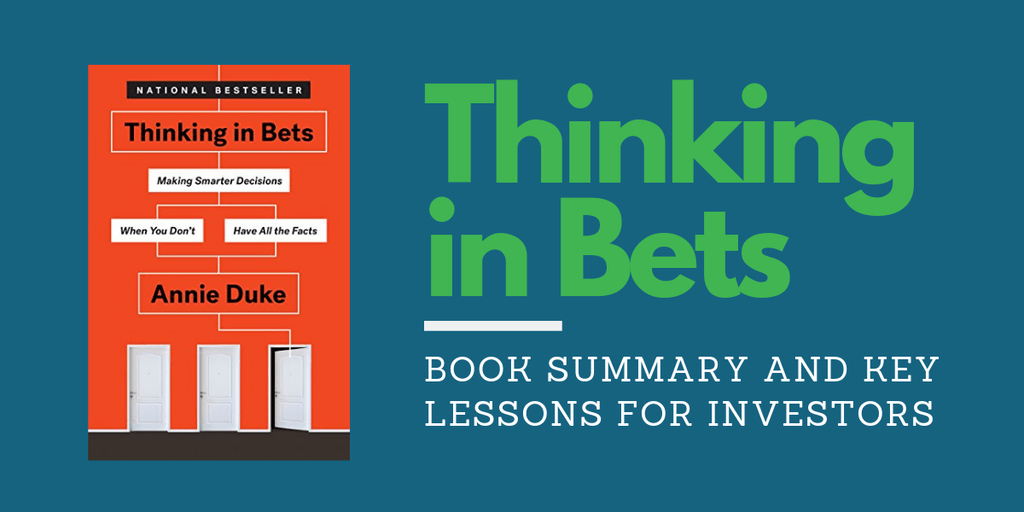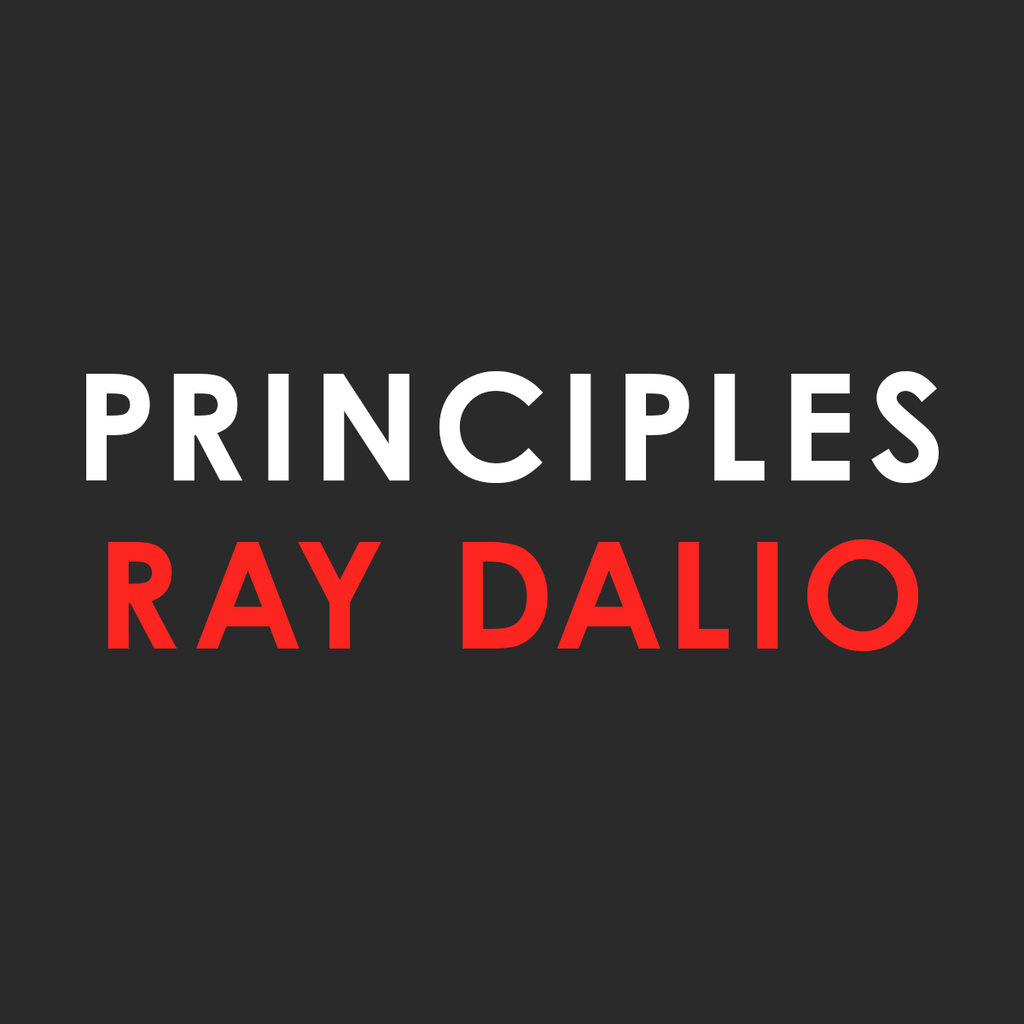Angel by Jason Calacanis – Book Review and Key Lessons

Angel: How to Invest in Tech Startups is an investing book written by the well-known angel investor Jason Calacanis. Jason is the host of the podcast This Week In Startups and is well-known for his early investments in Uber, Thumbtack, Robinhood, Wealthfront, and others.
In Angel, Jason shares his thoughts, lessons, and strategies on angel investing with the hopes of helping new angels make their first tech startup investments.
While the focus of the book is on angel investing, there are excellent lessons and strategies that apply to all early-stage investments, including equity crowdfunding.
Today, we will cover some key lessons from the book that can be applied to equity crowdfund investing and startup investing in general.
To grab a copy, head over to our books page and check out some other books to help bring your startup investing game to the next level.
Our Top 3 Takeaways for Early-Stage Crowdfund Investors
While there are useful strategies and nuggets throughout, we believe that three of the biggest lessons that equity crowdfunding investors can take from Angel are as follows.
- Every investor should write deal memos before making any investment
- Jason believes that every angel investor should write deal memos. Whether you call it a deal memo, investment decision log, or any other name, these are the notes that will help clarify your short-term thinking and improve your long-term investment process.
- This is something that I implement myself, not only with startups, but also with stocks and other securities. Before making any investment decision, I document my rationale for making the decision. Reflecting on this unbiased view of my thinking several years later has proven invaluable to helping me remain more objective and improve my investment decision-making.
- To get a free copy of the decision log template that I use for my own investments, check out Crowdwise Academy Lesson 1-2-1 here (create a free account to log in and download the template).
- Invest in founders and teams, not products
- Investing in early-stage businesses (e.g. Pre-Seed, Seed, Series A) comes with a much higher risk, due to less (if any) traction and revenues, unproven business models, and other unknowns. According to one study, nearly 80% of companies that raised a Seed round failed to raise any follow-on funds, while only 50% of those that raised a Series A failed to raise a Series B.
- Because so many uncertainties exist, Jason says it is key to invest in the founders and team, not in the products themselves.
- “No gamble, no future”
- Throughout the book, Jason uses the analogy of placing bets in poker with his investments in tech startups. The quote is a variation of the well-known “you can’t win if you don’t play” or “you miss 100% of the shots you don’t take” mantras.
- As we discussed in recent posts regarding risk versus reward, Jason says that if you don’t risk anything in your investments or in life, then you can’t expect to get vastly different outcomes than you’re currently getting.
- This does not mean you should be reckless; in fact, Jason likens his tech startup success odds to being the difference between the common person buying lottery tickets vs. his “lottery tickets” (i.e. startups) that are in the top 1% chance of winning.
Many other lessons from Angel are applicable to equity crowdfund investing. Here are some of the best examples from numerous different categories.
Investment Beliefs
Investment outcomes are random.
Even for the best investors, outcomes are random and unpredictable. However, the best investors do have several tricks up their sleeves that make their odds better than just a random spray-and-pray approach to investing. The tips and tricks that Jason believes make a difference are the ones he shares in Angel.
To have an investment that will potentially make you money, by definition it must look “crazy” or “stupid” to other people.
If everyone knew that a deal was a sure thing, then those expectations would already be priced into that investment. This means your investment wouldn’t get the once-in-a-lifetime returns you would expect. Even for some of today’s largest businesses like Airbnb, Uber, and many others, the list of well-known investors who passed on those deals in their earliest stages is long. This is something I often have to remind myself of. That is, to make money, being correct is not enough (e.g. Company XYZ will be successful). You have to be superior to other investors who likely have the same information and have drawn similar conclusions to you.
You can make your own luck.
Although most of life and most investment outcomes are random, Jason believes that luck is not random. He believes that by “…just do[ing] the work” and by surrounding yourself with other successful people, you can create more luck for yourself.
Monthly investor updates are the pulse of a startup’s health.
Jason has something he calls “Jason’s rule of startups”, which states that if a startup isn’t sending an Angel investor updates, then that company is likely going out of business. While equity crowdfunding investors may not be entitled to the same level of detail in updates and may have different (if any) information rights, it is a good perspective to keep in mind.
Investment Returns
There are no guaranteed returns in early-stage investing.
Jason doesn’t sugar-coat the fact that most early-stage investments will fail. However, as he points out, even if you do relatively poorly as an angel investor and only get your money back, the experience of investing in those early-stage companies still bestowed on you many fantastic advantages. Some examples are being around driven and creative people, expanding your network, and always gaining new knowledge and learning new things.
Angel Investor returns follow power-law distributions.
An interesting conjecture that Jason makes is that if you remove the top three “hits” (i.e. big wins) from all angel investors’ portfolios, then their overall returns likely have “…the exact same return profile…”. This is the power law at work where the top one or two investments will return the majority of the fund (i.e. portfolio). This is an important reminder for investors; no matter how good of an investor you are and how much time you spend screening deals, there is still a large aspect of luck that determines the best returns.
Failures will happen in the early years and successes will lag.
He provides a solid reminder that most business failures will happen right out of the gate during year one or two, while the successes will take much more time to mature and provide exits. Thus, don’t be discouraged by failures in the early years with few, if any, positive outcomes.
Investor Psychology
Cognitive biases – such as confirmation bias, negativity bias, and many others – all influence our personal investment decisions.
If you have been following the CrowdWise blog for a few months, you already know that we are huge believers that psychology plays a massive role in any investor’s potential success. Jason mentions a few of these biases in his book, reminding investors that they are blind to more things than they think. His advice? He says “…you must unlearn what you have learned to be a successful angel.”
Write deal memos.
To continually improve your decision-making process, you should document your reasons for investing, potential risks and concerns, and other rationale before making any investment. This helps to not only clarify your near-term thinking by forcing you to put it down in writing, but also provides an unbiased account of your logic and rationale for you to reflect on in the long-term. Jason recommends reflecting on these memos each time a startup raises additional funds or another decision must be made.
Due Diligence and Deal Screening
Don’t make investment decisions without taking time to reflect.
Jason advises new angels to “never say yes in a meeting.” He suggests telling founders that you need to complete due diligence and compare investment options before making a decision. In equity crowdfunding, this same principle applies. It is easy to get caught up in the charismatic auras of passionate founders that will convince you that they are changing the world. Instead of making an investment immediately after reviewing the pitch deck or hearing a founder speak, take a few days to reflect on the opportunity. Look at it as objectively as possible and compare it with alternative investments you could be making. This is even more vital for new crowdfunding investors that are just starting out. There are dozens of new deals out there every week, so take your time and don’t fall victim to FOMO (fear of missing out).
If possible, use the company’s service, download their app, or try their product.
Although he still recommends investing in the founder and not the product, when performing due diligence, Jason says that you can learn a lot by trying the product or service of the startup. If you use a product or service, he believes that you are then much more informed than many other investors who don’t exert that level of effort in due diligence. Try signing up for a free trial, using the product, or downloading the app, and see what the customer experience is like and whether the team is focusing on the right things.
Potential investments must have “great founders and big ideas.”
Does the founder mainly talk about building a fancy new feature or app, or do they have a bold vision to change the world? While the product or service may be the same in respect to that question, the vision of the founder and their mission can tell you a lot. As Sam Altman from Y-Combinator said, it’s often “…easier to start a hard startup than it is to start an easy startup.” That’s because it’s easier to get employees, investors, and customers behind a big, bold vision than it is for a smaller and weaker one.
Business scalability matters.
Jason believes there are only two types of businesses: scalable and non-scalable. He only invests in the former. In the equity crowdfunding world, both types of businesses will be prevalent. Jason gives examples of non-scalable businesses such as “[i]ndependent films, restaurants, bars, bed-and-breakfasts, consulting firms, clothing lines, and microbreweries.” While there are some rare exceptions, most of them require much more effort and capital to scale to the order of billions of dollars, which means more risk of failure, more potential dilution, and many other risks to maximizing your returns.
Your investment decision is not permanent.
Your decision to invest or not is only based on the current round, circumstances, and available information. This doesn’t mean that you shouldn’t consider that company in a future round. You can always monitor progress and potentially decide to invest if they have made significant progress. Just keep in mind the founder vs. product distinction – while it is relatively easy to pivot from one product that isn’t working to another and try to raise additional capital, changes in the founder and their ultimate capabilities are often much slower, if they are able to evolve and adapt at all.
Founders and Minimum Viable Products (MVPs)
Look to invest in founders that are “doers” vs. “talkers”.
Jason is a strong believer in investing in “doers” vs. “talkers”. He’d rather see someone who has tried several iterations of an idea, figured out what doesn’t work, and continues to produce, vs. someone that has a great idea but is waiting for the safety net of funding or for the “perfect time” before building out their idea. This harkens back to how he invests in founders and not products.
Lessons that may not apply to crowdfund investing
While there are numerous lessons in Angel that apply to crowdfund investing, there are also many points that Jason makes that will likely differ for Reg CF investors.
First is his strong belief that to be successful in angel investing, you must be located in Silicon Valley. Obviously, this is a major difference between angel investing and Reg CF and online startup investing. Regardless, there are many angel investors out there who would also beg to differ on this point.
Next is his belief that angel investing is an opaque practice and must remain opaque due to the potential for high returns. The democratization of early-stage investing and access to capital is one of the very points that equity crowdfunding is looking to resolve, so it will be interesting to see how the returns of crowdfund investing compare to angel investing in the coming years.
Several other chapters discuss concepts that are important to angel investors that do not apply to Reg CF investing, such as getting on Cap Tables by being advisors or board members, exercising pro-rata rights (e.g. follow-on investments in later rounds), and several other topics.
If you are investing large amounts of capital like traditional angels (i.e. $10k+ per deal), you should definitely pick up a copy of his book to get all the details.
Book Summary – Angel by Jason Calacanis
While his opinions are expressed in a passionate (and some may say arrogant or brash) way, Jason’s early-stage investment credentials have earned him the right to do so. Since Jason is a first-round investor in companies like Uber and Thumbtack, the opportunity to dive inside his mind and see his thought process for investing in tech startups is a valuable experience for any early-stage investor.
He does share his own investment process and details, and the book is a great starting point for any investor looking to begin investing in tech startups.
Were Jason’s investments successful due to luck or skill?
One thing to keep in mind is whether some of the most successful angel investors today are just a form of survivorship bias. That is – with a large enough pool of investors, assuming that every investor picked startups completely randomly, a few investors would be statistically probable to be vastly more successful than everyone else.
Those investors would then be the ones touting their unique and proprietary investment methods, even though there were no causal factors that influenced their outcomes. And they may truly believe in their own superiority, despite the fact that luck was the real driver.
Are successful startup investments primarily due to luck or skill for Jason and other angel investors? The reality is, it’s likely a combination of both.
Warren Buffett, in a speech to Columbia University, discussed a similar situation using coin-flipping orangutans. While the orangutans who managed to get 20 straight heads shouldn’t be seen as having any type of “secret sauce,” Buffett does say:
…if (a) you had taken 225 million orangutans distributed roughly as the U.S. population is; if (b) 215 winners were left after 20 days; and if (c) you found that 40 came from a particular zoo in Omaha, you would be pretty sure you were on to something. So you would probably go out and ask the zookeeper about what he’s feeding them, whether they had special exercises, what books they read, and who knows what else. That is, if you found any really extraordinary concentrations of success, you might want to see if you could identify concentrations of unusual characteristics that might be causal factors.
Thus, whether or not Jason’s massive investment successes were due to skill, luck, or some combination of the two, it is still worth checking out the lessons that he shares in Angel so that you can add more tools and perspectives to your investment decision arsenal.
For Serious Investors Only – Get 6+ Hours of FREE Startup Investing Courses
As Jason highlights throughout his book, early-stage investing is risky and can be intimidating for new investors. But it doesn’t have to be.
Where do you get started? How do you invest in startups? Where do you invest? What are the risks? What are potential returns?
If you take your investments seriously and want to maximize your odds of success in this risky asset class, then you need to sign up for our free Crowdwise Academy courses:
[thrive_link color=’blue’ link=’http://crowdwise.org/membership-options/’ target=’_self’ size=’medium’ align=”]Get Free Startup Investor Courses Now[/thrive_link]
We have over six hours of free startup investor courses to help you take your investment game to the next level.
If you are investing in startups because you think it is fun or because you want to support a friend or idea, that’s perfectly fine. There are plenty of investors out there who do this.
But if you are like me and you invest in startups to diversify and to make money, you need to ensure you understand all the nuances and risks of the early-stage markets. That’s where Crowdwise Academy can help.






Responses